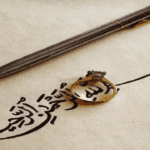In the realm of Islamic practices, “ghusl ki dua” holds a significant place. This ritual, often performed for spiritual purification, is deeply rooted in Islamic traditions. Understanding the nuances and significance of “ghusl ki dua” goes beyond a mere set of actions; it delves into the spiritual and historical fabric of Islam.
Contents
- 1 Understanding the Ritual of Ghusl
- 2 Ghusl ki Dua in Arabic
- 3 Humbistari ke baad Ghusl ki Dua in Hindi
- 4 Ghusl ki Dua after periods
- 5 The Spiritual Aspect
- 6 Historical Context
- 7 Step-by-Step Guide
- 8 Common Misconceptions
- 9 Benefits of Regular Practice
- 10 Ghusl Ki Dua Variations
- 11 Tips for a Meaningful Ghusl Ki Dua
- 12 Frequently Asked Questions (FAQs)
- 13 Significance in Different Islamic Traditions
- 14 Modern Perspectives
- 15 Personal Experiences
- 16 Encouraging Regular Practice
Understanding the Ritual of Ghusl
“Ghusl,” in Arabic, refers to a full-body ritual purification mandatory in specific situations. The essence of this practice lies in the thorough cleansing of the body and soul. It is crucial to comprehend the different scenarios that necessitate “ghusl,” such as after marital relations, menstruation, or post-childbirth.
Ghusl ki Dua in Arabic
اِنَّ اللّٰهَ يُحِبُّ التَّوَّابِيۡنَ وَيُحِبُّ الۡمُتَطَهِّرِيۡن
ALLAH tauba karne walo aur paak rehne walo ko pasand farmata hai.
Humbistari ke baad Ghusl ki Dua in Hindi
अल्लाह तौबा करने वालो और पाक रहने वालो को पसंद फरमाता है।
Ghusl ki Dua after periods
A natural part of a woman’s body is shedding the lining of her uterus, known as menstruation. Traditionally, during this time, women were seen as unable to participate in certain religious practices like prayer (Salah) and handling the Quran. However, after their period ends, women can return to these activities through a full-body purification ritual called Ghusl.

The Spiritual Aspect
The act of performing “ghusl ki dua” transcends the physical realm. It is a spiritual endeavor aimed at achieving a higher state of purity. By immersing oneself in this ritual, believers seek to cleanse not only their bodies but also their souls, fostering a deeper connection with the divine.
Historical Context
Rooted in Islamic history, “ghusl ki dua” has evolved over centuries. Its origins can be traced back to the practices of Prophet Muhammad (peace be upon him), emphasizing the importance of cleanliness and spiritual purity.
Step-by-Step Guide
Executing “ghusl ki dua” requires a meticulous approach. Begin with the intention, followed by specific steps such as washing the hands, mouth, nose, face, and other body parts. The process culminates with the recitation of the dua, highlighting the importance of mindfulness and sincerity throughout.
Common Misconceptions
Misunderstandings about “ghusl ki dua” abound. It is crucial to address misconceptions, ensuring accurate information prevails. This includes dispelling myths and offering clarity on the purpose and procedure of this ritual.
Benefits of Regular Practice
Regularly performing “ghusl ki dua” yields a multitude of benefits. Beyond the physical cleanliness, individuals experience a profound sense of spiritual well-being. This practice can positively impact mental health and contribute to a more balanced and centered life.
Ghusl Ki Dua Variations
The dua itself may vary across regions and cultures. Exploring these variations enriches one’s understanding of the diversity within the Islamic community while emphasizing the universal aspects that bind believers together.
Tips for a Meaningful Ghusl Ki Dua
Elevate the experience of “ghusl ki dua” by incorporating mindfulness and reflection. By doing so, individuals can transform a routine ritual into a spiritually enriching practice that resonates on a deeper level.
Related Posts:
Frequently Asked Questions (FAQs)
Is “ghusl ki dua” only performed by Muslims?
A: Yes, “ghusl ki dua” is a ritual specific to Islamic practices, serving as a purification process for believers.
How often should one perform “ghusl ki dua”?
A: The frequency varies based on the circumstances that necessitate it. For instance, after marital relations or menstruation.
Can “ghusl ki dua” be performed at any time of the day?
A: Yes, it can be performed at any time, provided the necessary conditions are met.
Are there variations in the dua based on cultural differences?
A: Yes, cultural variations may influence the specific wording, but the essence remains consistent.
What role does intention play in the effectiveness of “ghusl ki dua”?
A: Intention is fundamental; the sincerity and purity of intention contribute significantly to the ritual’s efficacy.
Significance in Different Islamic Traditions
While the core essence of “ghusl ki dua” remains consistent, its significance may vary across Islamic traditions and sects. Understanding these variations fosters a sense of unity and respect among diverse communities.
Modern Perspectives
In a rapidly evolving world, the relevance of “ghusl ki dua” persists. This ritual can be adapted to modern lifestyles, serving as a source of stability and spiritual grounding in the face of contemporary challenges.
Personal Experiences
Many individuals have shared profound experiences related to “ghusl ki dua.” These personal stories highlight the intimate connection believers develop with this ritual, emphasizing its transformative power.
Encouraging Regular Practice
In conclusion, the regular practice of “ghusl ki dua” is not merely a religious obligation; it is a pathway to spiritual enrichment. By incorporating this ritual into one’s routine, individuals can experience a profound sense of cleanliness, both physically and spiritually.










